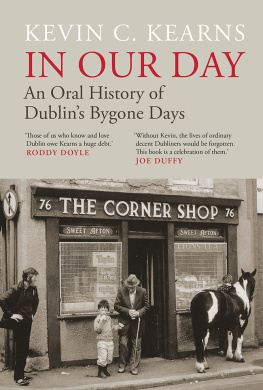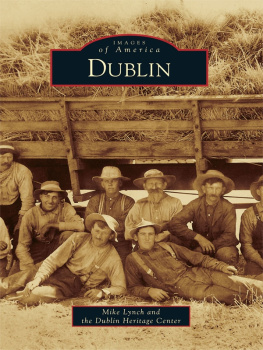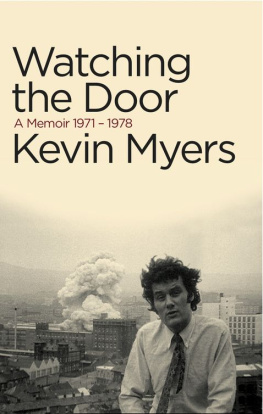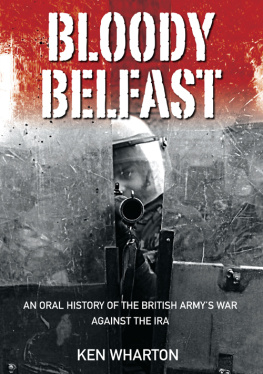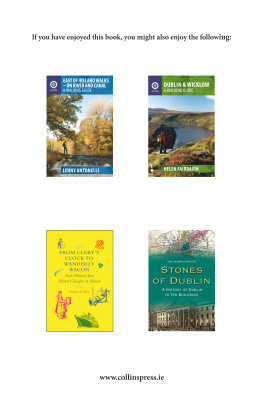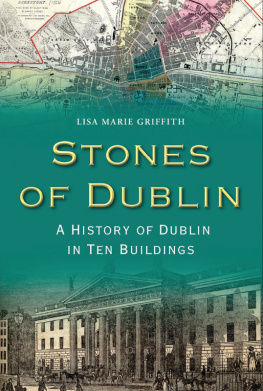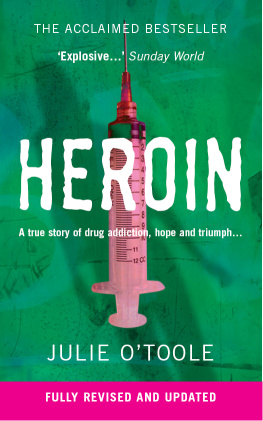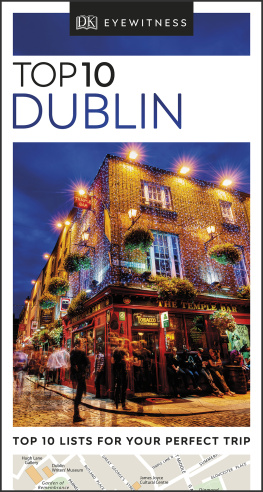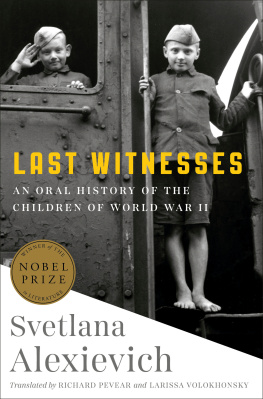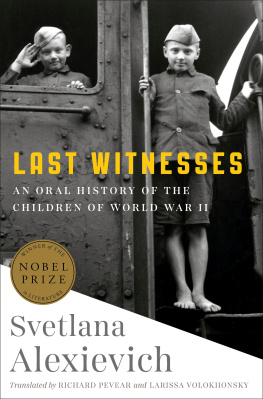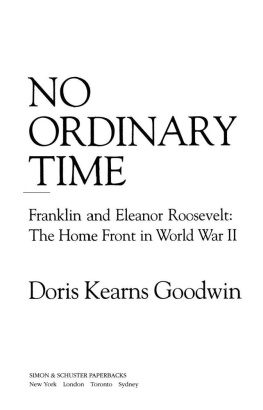About Gill Books
Gill Books story begins in 1856 when Michael Henry Gill, then printer for Dublin University, purchased the publishing and bookselling business of James McGlashan, forming McGlashan & Gill. Some years later, in 1875, the company name was changed to M.H. Gill & Son. Gill & Macmillan was established in 1968 as a result of an association with Macmillan of London. There was also a bookshop, popularly known as Gills, located on Dublins OConnell Street for 123 years until it eventually closed in 1979. Today our bookshop can be found online at www.gillbooks.ie.
Gill Books is proud to publish a broad range of non-fiction books of Irish interest, from history to economics, politics to cookery, and biography to childrens. Since 1968, we have published outstanding authors and groundbreaking books such as Fatti and John Burkes Irelandopedia, David McWilliams The Popes Children, Nol Brownes Against the Tide, Garret FitzGeralds All in a Life, Augustine Martins Soundings, the phenomenal, bestselling fiction series Oh My God, What a Complete Aisling by Emer McLysaght and Sarah Breen, and smash-hit cookbooks that include The Daly Dish by Gina and Karol Daly and Midweek Meals by Neven Maguire.
We also publish a wide range of educational books and resources, and we provide a distribution service for the majority of Irelands independent publishers.
For more information about us, our titles, or to join our mailing list, please visit www.gillbooks.ie.
ACKNOWLEDGEMENTS
To those hundreds of men and women who have for the past 50 years shared with me their life stories and experiences, I owe my inexpressible gratitude. They gave my life deeper meaning and purpose: to chronicle and preserve the lives of ordinary Dubliners, left out of the formal historical archives, to be shared with generations yet to come.
My great appreciation is also due to all at Gill Books who had a role over these decades in patiently transforming my primitive typed paper manuscripts into dignified books. Especial thanks to Fergal Tobin, Deirdre Rennison Kunz, Nicki Howard, Deirdre Nolan, Sean Hayes, Rachel Thompson, Laura King, Teresa Daly and so many others. Particular respect is reserved for Michael Gill, who has always been most gracious, supportive and helpful, making me especially proud to be one of Gills authors.
ALSO BY KEVIN C. KEARNS
Georgian Dublin: Irelands Imperilled Architectural Heritage
Dublins Vanishing Craftsmen
Stoneybatter: Dublins Inner Urban Village
Dublin Street Life and Lore: An Oral History
Dublin Tenement Life: An Oral History
Dublin Pub Life and Lore: An Oral History
Dublin Voices: An Oral History
Streets Broad and Narrow: Images of Vanishing Dublin
Dublins Lost Heroines
The Bombing of Dublins North Strand, 1941
Irelands Arctic Siege
The Legendary Lugs Branigan
Ireland 1963
Working Class Heroines
Chapter 1 
YOUTH AND INNOCENCE
MAY HANAPHY, b. 1907
Born and reared in the poorest of the old Liberties. In 1921 she was employed by Jacobs biscuit factory, where she worked for over fifty years.
Jacobs always took on girls at fourteen. At Whitefriar Street School we were taught how to write an application and we all applied: Dear Sir or Madam, I am fourteen years of age. I am leaving school. I would be very pleased if you would accept me to give me a trial. And I always remember my teacher, Mrs Simpson, saying, now always make it short because they dont be bothered going into details. And at the end, awaiting the courtesy of your reply, I thought that was beautiful.
Then they sent you a card for an interview. So you lined up and youd be all excited ... a kind of excited fear. Now, the interview was a wee bit personal, the lady supervisor would look at your head to see was your head clean. They went through your hair with a pencil, they wouldnt touch you. And they looked at your nails and at your feet and made you walk across the room and back. And they had a doctor and a nurse on the premises and the doctord examine your chest and your ears and your eyes. And they had their own dentist and he went through your teeth. And hed say, Oh, you have to have that tooth out! and you had to do it ... if you wanted to work there. Oh, you were just like little animals ... and we were called Jacobs mice.
After the doctor examined you, you were told to start on Monday morning. And you got your little card and your name and address on it. Oh, I was delighted! And I went home and said, Oh, Ma, look!
MARY DOOLAN, b. 1915
One of thirteen children including three sets of twins.
As kids we could stand on the wall outside Francis Street Chapel cause our tenement was next to the church. The girl and fella got married and come out of the chapel and, oh, youd see them skipping rope on the street. Married but skipping rope! They were so innocent! And the groom would throw out a few coppers in a brown bag to the kids. Hapennies and pennies. Oh, yeah, that was called the grushie. Ah, the kidsd kill one another for it!
VINCENT MULDOON, b. 1910
Fishmonger on Manor Street.
We were in the fish business since 1904. Mother run the shop. At fourteen I delivered the milk on a horse and cart, two pence a pint. I started at half four in the morning. Id make the rounds to the fish market that opened at five so they could get a cup of tea with milk in it. Then on to the men who worked at Guinnesss and the Post Office because they had to be in terribly early.
Then Id go around with twenty-gallon churns on the cart. They were silver and youd have to have them shined to look clean. I could go to two hundred and fifty [tenement] rooms in a day. Up five flights of stairs with the loose milk in a can and a pint and a half measure. I was terribly active and I flew up and down the stairs. And thered be about ten cats smelling the milk and youd nearly fall over them!
MARO WYNN, b. 1932
Lived on the northside in Avondale House flats, where women were forced by husbands to have large families.
I had to leave school to look after my [sick] mother at ten years old. When she died I just took care of me brothers. I grew up very young. But I had to be the mother ... you know, I just had to be the mother!
HUGH MAGUIRE, b. 1927
Tram and bus conductor.
I started off in 1942 as what they called a ticket boy. I was fourteen. Id get onto the trams at Nelsons Pillar and pick up all the tickets on the floor. In those days there was gross unemployment and I was very proud that I had a job. I had a uniform and I was very proud! My wages were eleven shillings and sixpence. Nine shillings went to my mother and father and two and sixpence for myself.
Then when I was seventeen I got a job as a messenger on Aston Quay. CI buses had depots around the country and on the buses theyd bring in correspondence and money in black boxes. Oh, they would be heavy black metal boxes about eighteen inches long by about twelve wide. It was my job to bring these to the head office. I had a little handcart and I wheeled it up along OConnell Street every morning at nine.
MARY ONEILL, b. 1907
Lived on Chamber Street in the Liberties.
We had a great landlord, Mr OLeary was his name. Every New Years Day wed [children] all stand outside the doors waiting for our pennies. And wed get brand new pennies! Every one of us, all the kids in the street.
CHRISTY MURRAY, b. 1910
Next page
